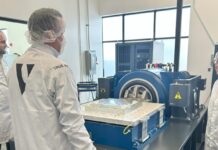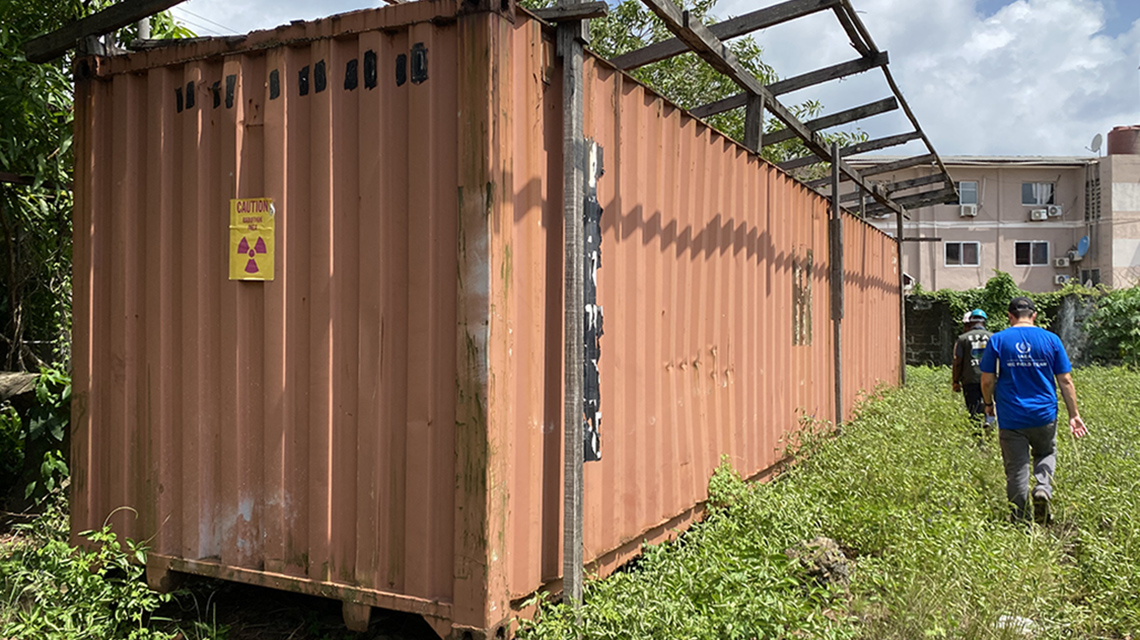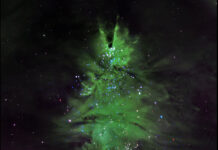Liberia Accelerates Its Accession to Nuclear Safety Treaties Following Critical IAEA Intervention
Liberia has recently taken decisive steps to fast-track its accession to vital nuclear safety treaties. This move comes in the wake of a potential radiological incident that was averted, thanks to the timely intervention of experts from the International Atomic Energy Agency (IAEA). The incident had the potential to disrupt operations at Liberia’s main hospital, the John F. Kennedy Medical Centre in Monrovia, which could have adversely affected thousands of patients.
Request for Assistance
In May 2024, the Environmental Protection Agency (EPA) of Liberia reached out to the IAEA’s Incident and Emergency Centre (IEC). The request followed the detection of an unidentified radioactive source in a maintenance room at the John F. Kennedy Medical Centre. The discovery posed a significant risk, as failure to manage the source swiftly could have resulted in severe disruptions to the hospital’s operations, affecting countless patients who rely on its services.
IAEA Response
Upon receiving the request, the IAEA developed a comprehensive plan and dispatched a fact-finding mission team. This team included the IEC response system coordinator and a specialist in disused sealed sources. The experts arrived in Monrovia on May 21, and by the next day, the radioactive source had been secured, allowing the hospital to continue its operations without interruption.
International Cooperation Framework
The assistance request from Liberia was made under the operational arrangements of the Convention on Assistance in the Case of a Nuclear Accident or Radiological Emergency. This convention establishes an international framework for cooperation between State Parties and the IAEA to facilitate prompt support during nuclear or radiological emergencies. Although Liberia was not a party to this convention at the time, it has since joined the convention and five other IAEA legal instruments during the IAEA’s 68th General Conference.
Expert Insights
Florian Baciu, the IAEA Response System Coordinator in the Department of Nuclear Safety and Security, explained, “The Assistance Convention does not mandate that only parties may receive international assistance. Emergencies are events that overwhelm available resources for response. Even a relatively minor event can become an emergency in the absence of appropriate resources and training. International assistance is therefore available to any State that requires it, to mitigate the impact of a nuclear or radiological emergency on their territory.”
Mission Details
The primary objective of the IAEA mission in Monrovia was to prevent the temporary closure of the JFK Medical Centre, a crucial facility for the country’s healthcare system. The radioactive source, identified as Caesium-137, is a man-made radionuclide widely used in medical and other fields. The team deduced that the source originated from a disused brachytherapy machine, a type of internal radiation therapy used to treat tumors. The machine had likely been placed in the hospital’s scrap metal facility after being decommissioned. This incident underscored the importance of proper handling and disposal of radioactive sources, particularly those used in medical equipment.
Radiation Survey and Source Removal
During the mission, the IAEA team conducted a thorough radiation survey and confirmed that the isotope was Caesium-137. They safely removed the source from a stormwater drain in the former scrap metal facility, now repurposed as the hospital’s maintenance room. The source was then secured in a shielding container provided by the Liberian Environmental Protection Agency (EPA) and transported to a secure storage location. The IAEA team also completed a radiological survey of the area and concluded that it was highly unlikely anyone had been exposed to radiation levels high enough to cause health problems. This swift response helped alleviate public and hospital staff anxiety and addressed misinformation about potential health hazards resulting from the incident.
Agency and EPA Statements
Emmanuel K. Urey Yarkpawolo, the Executive Director of the EPA, expressed his gratitude, stating, “The prompt assistance provided by the IAEA demonstrates the Agency’s commitment to building nuclear safety frameworks and supporting Member States in assessing and addressing their unique needs and urgencies. The mission did not only address the immediate concerns of the Liberian Government but also underscored a proactive approach to preventing small issues from escalating to bigger problems. The quick response by the IAEA during our time of need further highlights the broader scope of the Agency’s work, which transcends beyond emergency response to encompass comprehensive assistance.”
Baciu echoed these sentiments, adding, “The collaboration with the local authorities was seamless, and their proactive approach facilitated this swift action. Our goal is to provide countries with support to ensure that they are able to respond effectively to any type of emergency, irrespective of scale. We also encourage more States to join the IAEA’s Assistance Convention, as this allows for quick and formal communication channels to receive assistance and support promptly.”
Conclusion and Broader Implications
This incident in Liberia highlights the critical importance of international cooperation and rapid response in managing radiological emergencies. The successful intervention by the IAEA not only prevented potential disruptions at a key healthcare facility but also demonstrated the value of global frameworks like the Assistance Convention. By joining this and other IAEA legal instruments, Liberia has taken a significant step towards enhancing its nuclear safety infrastructure, ensuring better preparedness for future incidents.
The proactive measures taken by both the Liberian authorities and the IAEA serve as a model for other nations, emphasizing the need for proper training, resources, and international collaboration in handling nuclear and radiological emergencies. As more countries join the IAEA’s Assistance Convention, the global community will be better equipped to respond to such incidents, ultimately safeguarding public health and safety.
For more information on the IAEA’s work and international nuclear safety frameworks, you can visit their official website here.
For more Information, Refer to this article.


































